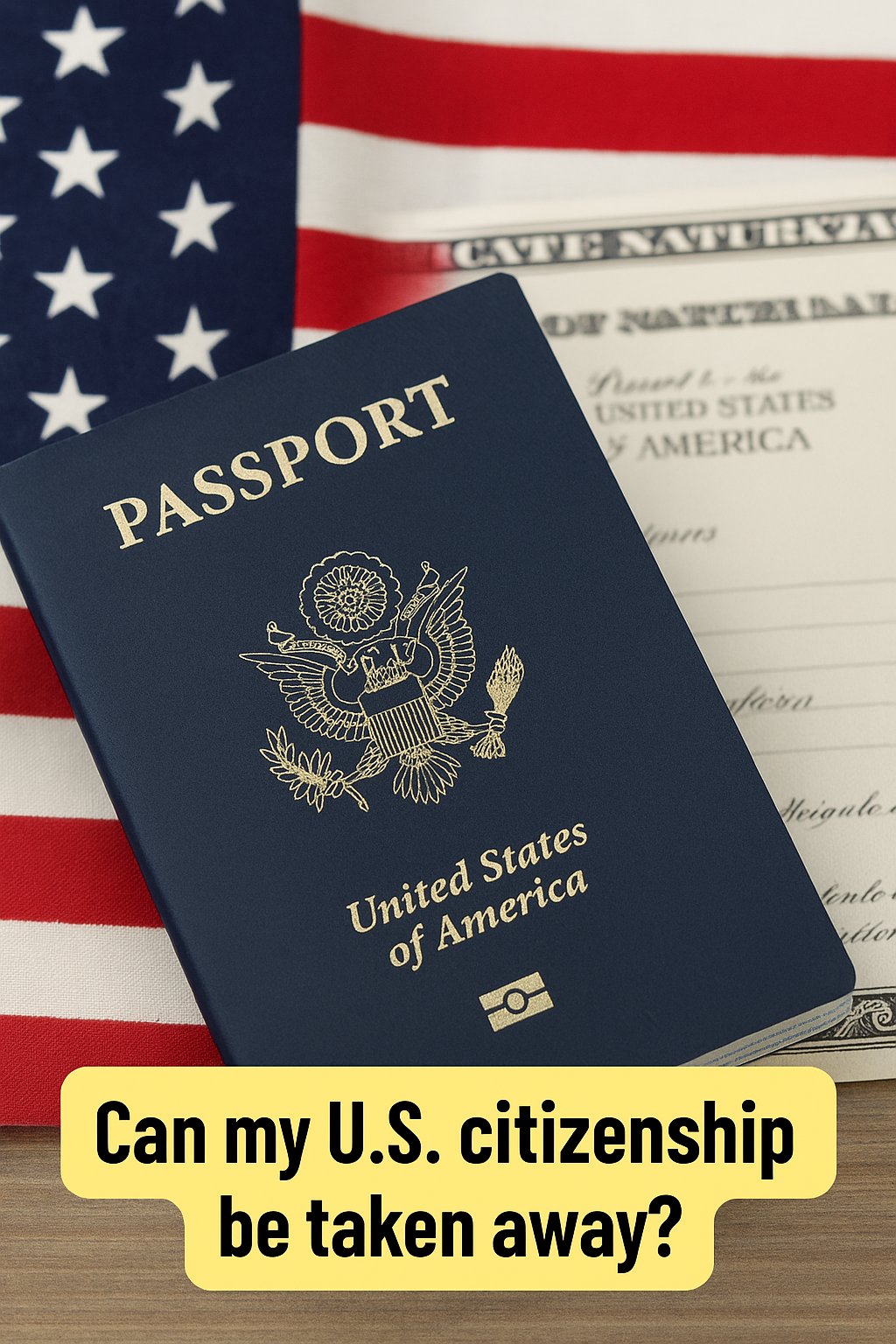- Free Consultation: (213) 251-5533 Tap Here to Call Us
Denaturalization in America: How the Government’s War on Citizenship Threatens Us All

The United States has long prided itself on being a nation of immigrants, where citizenship represents stability, belonging, and a permanent bond with the country. Yet recent policy shifts have reignited debates about whether citizenship is as secure as many Americans once believed. The Department of Justice (DOJ), under President Trump’s administration, has elevated denaturalization—stripping Americans of their citizenship—to a top enforcement priority. This marks a dramatic departure from historical practice and raises grave concerns about due process, civil liberties, and the future of democratic participation.
For decades, denaturalization was a rarely used tool reserved for extreme cases involving war crimes, espionage, or large-scale immigration fraud. Between 1990 and 2017, only 305 denaturalization cases were filed, an average of 11 per year. By contrast, during the first Trump presidency, referrals for denaturalization increased by more than 600 percent, many stemming from minor discrepancies such as clerical or translation errors in citizenship applications. Now, a June 2025 DOJ memorandum has pushed denaturalization further into the political arena, creating unprecedented risks for naturalized Americans.
The DOJ memorandum outlines broad categories of people who may be targeted. It states that any citizen the government deems “sufficiently important to pursue” may face denaturalization, though the term is undefined. It further prioritizes those labeled potential national security risks, those with ties to gangs or financial crimes, or individuals facing pending charges—even if no conviction exists. These sweeping categories are not grounded in the Immigration and Nationality Act, which only permits denaturalization in limited, specific circumstances such as fraud, dishonorable discharge from the military, or affiliation with subversive organizations within five years of naturalization. This disconnect suggests that the administration is either wasting government resources on cases that cannot succeed under existing law, or attempting to expand its power beyond what Congress has authorized.
Constitutional safeguards exist, but they are not ironclad. The Fourteenth Amendment prohibits the deprivation of citizenship without due process, and the Supreme Court has repeatedly emphasized that citizenship cannot be used as a political weapon. In Trop v. Dulles, the Court declared that citizenship cannot be stripped to express governmental displeasure. In Afroyim v. Rusk and later Vance v. Terrazas, the Court confirmed that a U.S.-born citizen cannot lose citizenship unless they voluntarily and intentionally renounce it. Yet even with these protections, denaturalization cases are civil proceedings, meaning individuals can lose their citizenship without notice, without the right to appear in court, and without access to legal counsel. This creates a disturbingly high risk of mistakes that could render someone stateless.
The broader consequences reach far beyond those directly targeted. Treating citizenship as conditional undermines the trust of millions of immigrants who have naturalized in good faith. It discourages lawful permanent residents from pursuing citizenship, erodes confidence in the fairness of government institutions, and weakens democratic participation. Once people begin to question whether their citizenship is permanent, they may withdraw from civic life, fearful that political winds could one day sweep away their rights.
This erosion of trust is not hypothetical. The first Trump administration’s denaturalization campaigns targeted individuals for minor errors, undermining the sense of security that naturalization was meant to provide. The new memorandum only deepens that uncertainty, relying on vague, discretionary standards like “sufficiently important” or “potential threat.” These terms grant the government enormous power with little accountability, leaving citizenship vulnerable to political abuse.
The lessons of history are stark. Citizenship was weaponized in Nazi Germany and during the McCarthy era in the United States. In both cases, citizenship became a tool of repression rather than a shield of protection. The Supreme Court warned in Schneiderman v. United States that the rights of naturalized citizens must not depend on the political temper of the moment. Yet the DOJ’s priorities suggest that very scenario: a shifting standard of citizenship based on politics rather than law.
Americans should be deeply concerned about the path being charted. Denaturalization is no longer a rare, narrowly tailored remedy but an enforcement weapon with sweeping implications. It risks creating a tiered system of citizenship where naturalized Americans are perpetually vulnerable, and even U.S.-born citizens could be targeted under expanded interpretations of expatriation laws. At its core, this undermines the very idea of equal citizenship on which the country was founded.
The debate about denaturalization is not just a legal or political issue—it is a question about the stability of American democracy. If citizenship can be undone based on minor errors or undefined labels of “importance,” then no American can feel entirely secure. True democracy requires that citizenship remain permanent, equal, and protected against the shifting currents of partisan politics.
Legal Disclaimer: This article is intended for informational purposes only and does not constitute legal advice. Reading this article does not create an attorney–client relationship. For a free phone consultation with Attorney Thomas M. Lee, please call (213) 251-5533.








